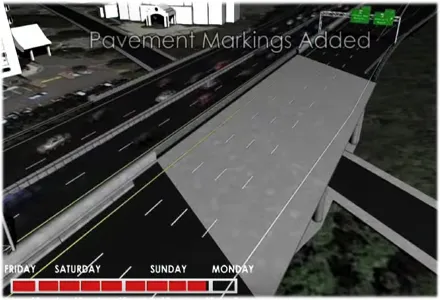The Serbian Government is considering a loan from China’s Export-Import Bank, which would pay for the construction of the E-763 highway. The bank looks set to give its approval for the €223 million loan, which would pay for 90% of the construction work for the E-763, or Obrenovac-Ljig, highway. The loan would be approved over a 20 year repayment period and a five year grace period at the fixed rate of 2.5%/year.
Meanwhile tendering will open for completion works on Serbia’s Pirot-Dimitrovgrad highway unti
November 22, 2013
Read time: 2 mins
The Serbian Government is considering a loan from China’s 1290 Export-Import Bank, which would pay for the construction of the E-763 highway. The bank looks set to give its approval for the €223 million loan, which would pay for 90% of the construction work for the E-763, or Obrenovac-Ljig, highway. The loan would be approved over a 20 year repayment period and a five year grace period at the fixed rate of 2.5%/year.
Meanwhile tendering will open for completion works on Serbia’s Pirot-Dimitrovgrad highway until 9th January 2014. The project was originally to have been carried out by the Austrian company2859 Alpine. However Alpine hit financial problems and work stopped, so the tender is for the remaining 14.3km of the highway still needing to be completed. The work will be funded by the 1166 European Bank for Reconstruction and Development (EBRD).
At the same time, there is now legal wrangling between the Serbian Government and the liquidation manager for Alpine, Jaksch Schoeller & Riehl. The Serbian company3235 Koridori Srbije is seeking a repayment of €78 million in damages at the Vienna Trade Court. However Alpine is seeking payments from Serbia. A second review of the case will be carried out shortly for the respective financial demands.
Meanwhile tendering will open for completion works on Serbia’s Pirot-Dimitrovgrad highway until 9th January 2014. The project was originally to have been carried out by the Austrian company
At the same time, there is now legal wrangling between the Serbian Government and the liquidation manager for Alpine, Jaksch Schoeller & Riehl. The Serbian company






